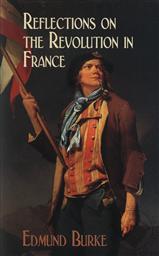

Burke is perhaps more aware than any other political writer I’ve come across (excepting Machiavelli) that a state is a complex organism. This brings me to the second of Burke’s tenets: gradualism. One wonders whether Paine’s goals could be equally accomplished through the slower but less bloody process of reform. A representative democracy is a very wonderful thing yet even for such a prize I would be hesitant to advocate revolution in any and all circumstances. If Paine had his way, every government the world over would have its own revolution in order to establish a representative democracy. But it must be said that Paine is distinguished for his inability to compromise. I admire Paine for championing the liberty and rights of the common people, and for his tireless criticism of oppression. Take, for example Burke’s contemporary, Thomas Paine. This is a truism but truisms are likely to be forgot. Politics, as has been rightly said, is the art of compromise. They render deliberation a matter, not of choice, but of necessity they make all change a subject of compromise, which naturally begets moderation they produce temperaments, preventing the sore evil of harsh, crude, unqualified reformations, and rendering all the headlong exertions of arbitrary power, in the few or in the many, forever impracticable. These opposed and conflicting interests, which you considered as so great a blemish in your old and in our present Constitution, interpose a salutary check to all precipitate resolutions. The first, and perhaps most important, tenet of Burke’s political advise is the importance of compromise: So permit me to jot down some of these ideas. I feel slightly odd saying such things about a proud monarchist, and a founder of modern conservatism but I cannot deny being captivated by his way of thinking. He is full of perspicacious insights into politics, and wise maxims of government.

He is a master of the written word, and a pleasure to read.īut, as I said, Burke is far more than a silver-tongued sophist.

A dazzling piece of rhetoric it surely is Burke’s writing style is in a league with Gibbon’s for eloquence, elegance, and power. “Burke is such a good writer,” he told me, “that he momentarily convinced me that monarchy is a great idea.” A writer good enough to do that, I thought, was worth a read and since I recently read Thomas Paine’s refutation of Burke’s attack on the French Revolution, The Rights of Man, it seemed like the perfect time to give Burke a go.īut now, after reading this book, I think it is far more than a dazzling piece of rhetoric. What first attracted me to Edmund Burke was the endorsement of a friend.


 0 kommentar(er)
0 kommentar(er)
